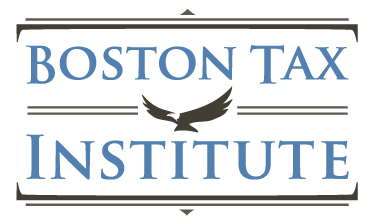Introducing a new guest on Your Tax Matters Partner. Mike Sylvester has some idea about how the IRS should spend the new money that will be coming its way.
The Inflation Reduction Act (IRA) H.R. 5376 is unlikely to change and will likely be signed into law by President Biden in the next few days. The United States seems to get more politically divided each year. Some of the bitterest topics revolve around forgiving student loan debt, abortion, gun control, and taxation. The Internal Revenue Service (IRS) is the agency charged with collecting taxes in the United States and is likely the most disliked Federal agency, in part due to regular attacks from certain Republican members of Congress.
The following information from public data sources show a simple story:
a. The IRS audited 0.9% of 2010 individual income tax returns, the audit rate decreased to 0.2% in 2019.
b. The IRS had the same number of employees in 2021 as it had back in 1974. The actual tax code has grown from 1500 pages to 7000. Most tax pros would argue that the tax code is more than five times as complicated due to all of the various rulings, treasury regulations, court cases, and Congress’s penchant for continually creating new temporary tax provisions, last minute tax provisions, and worse yet retroactive tax provisions. Further, the population of the United States has increased by 62% and the world is for more interconnected, leading to many more international tax issues.
c. The IRS goal is to answer 70-80% of phone calls placed to the agency. During the most recent tax season the IRS answered only 10% of phone calls.
d. The IRS has a backlog of at least 19 million paper filed returns and is significantly behind responding to correspondence of all kinds, dealing with amended returns, and who knows what else?
e. Any modern agency needs an up-to-date, secure, modern computer system. The IRS computer system has been insufficient for the last 40 years. The IRS cannot be a functional and secure agency without a modern and secure computer system. Several times I have called the IRS, with great difficulty gotten in touch with an IRS agent, and then been told the IRS computers are down and they cannot help me.
f. The IRS is significantly underfunded. The IRA designates just shy of $80 billion in additional funding to the IRS for the next 9.1 years. $45.6 billion is directed to go towards enforcement activities and the Congressional Budget Office (CBO) estimates this additional enforcement will result in an additional $204 billion in taxes to be collected. These are not new taxes; instead, they are taxes that should be paid; however, would not be paid due to improperly filed tax returns.
g. Most tax professionals I have spoken to favor additional tax funding for the IRS. That being said, most would prefer that operations, computer systems, customer service, and the massive IRS backlog be addressed first and that more money be earmarked for these items before enforcement. As is typical these days, Congress passes laws with little or no input from experts. There are many ways the IRS could use the additional enforcement dollars effectively and based on past experience with the IRS it seems unlikely the IRS will effectively spend this additional funding due to political meddling and a large and entrenched Federal bureaucracy. Ten ways the IRS could pursue more effective enforcement:
1. The IRS should carefully analyze the tax code and give Congress a comprehensive list of tax code changes that Congress should implement to simplify the tax code. These changes should include eliminating temporary provisions, eliminating retroactive tax law changes, and requiring tax laws for a calendar year to be finalized by September 30th of the year they apply to. This is likely the idea with the largest return on investment if Congress would actually listen.
2. The IRS should resist political pressure from Congressional Democrats and the IRS Commissioner to limit audits to those taxpayers earning $400k or more per year. The IRS has always used statistical analysis to determine which taxpayers to audit. This process should be improved and continue.
3. The IRS needs to more effectively communicate to the public the enforcement actions it is taking. This would let taxpayers know that the IRS is once again monitoring tax payer compliance and would encourage taxpayers to pay taxes due.
4. The IRS needs to locate tax preparers who willingly commit tax fraud. They need to prosecute them, close their businesses, investigate their clients, and publicize the results to both the public and the tax preparation community. Further, the IRS needs to use statistical analysis to determine which types of tax preparers they should audit.
5. The IRS has fewer enforcement personnel than any time since World War II. These personnel are experienced and most are nearing retirement. They have expertise and knowledge that must be passed on. The IRS needs to utilize these agents and get their input and feedback on improving enforcement.
6.. The Taxpayer Advocate does a good job monitoring the IRS and makes a large number of suggestions that are ignored by both the IRS and Congress. The IRS needs to open a dialogue with the Taxpayer Advocate and follow their recommendations regarding enforcement and everything else. Congress clearly needs to do the same.
7. The IRS should coordinate with the states regarding tax collections. A couple of years ago The Indiana Department of Revenue (INDOR) started a program to audit business and farm losses on Federal form 1040. The IRS Liaison for Indiana was very unhappy when he found out and felt it was entirely inappropriate that INDOR was auditing a federal return. The IRS should coordinate and share information with the fifty states rather than try to protect its “turf.”
8. The IRS should coordinate with state governments and Federal agencies and locate anyone using a social security number that they are not legally entitled to use. The primary purpose of a social security number is for tax purposes. The IRS could easily perform this function and should have been doing this for decades. Further, when the IRS locates individuals using social security numbers they are not entitled to use the IRS should coordinate with law enforcement and further investigate businesses that hire people with invalid social security numbers.
9. The IRS should pursue unfiled income tax returns quicker and more aggressively.
10. The amount of misinformation about the tax code circulating in The United States is frankly terrifying. I cannot not tell you how many clients have asked me about things they have heard that are entirely without merit. The IRS needs to effectively combat this misinformation. I truly hope the IRS rises to the occasion and effectively spends the tax payer funds allocated to it.
Mike Sylvester, MBA, CPA is a partner at SBS CPA Group in Fort Wayne, Indiana.
SBS CPA Group is a public accounting firm specializing in the needs of small businesses. Mike particularly enjoys preparing complicated personal and business
income tax returns.
For great value continuing professional education. I recommend the Boston Tax Institute

You can register on-line or reach them by phone (561) 268-2269 or email vc@bostontaxinstitute.com. Mention Your Tax Matters Partner if you contact them.
For articles oriented toward tax professionals check out Think Outside The Tax Box.
































































































